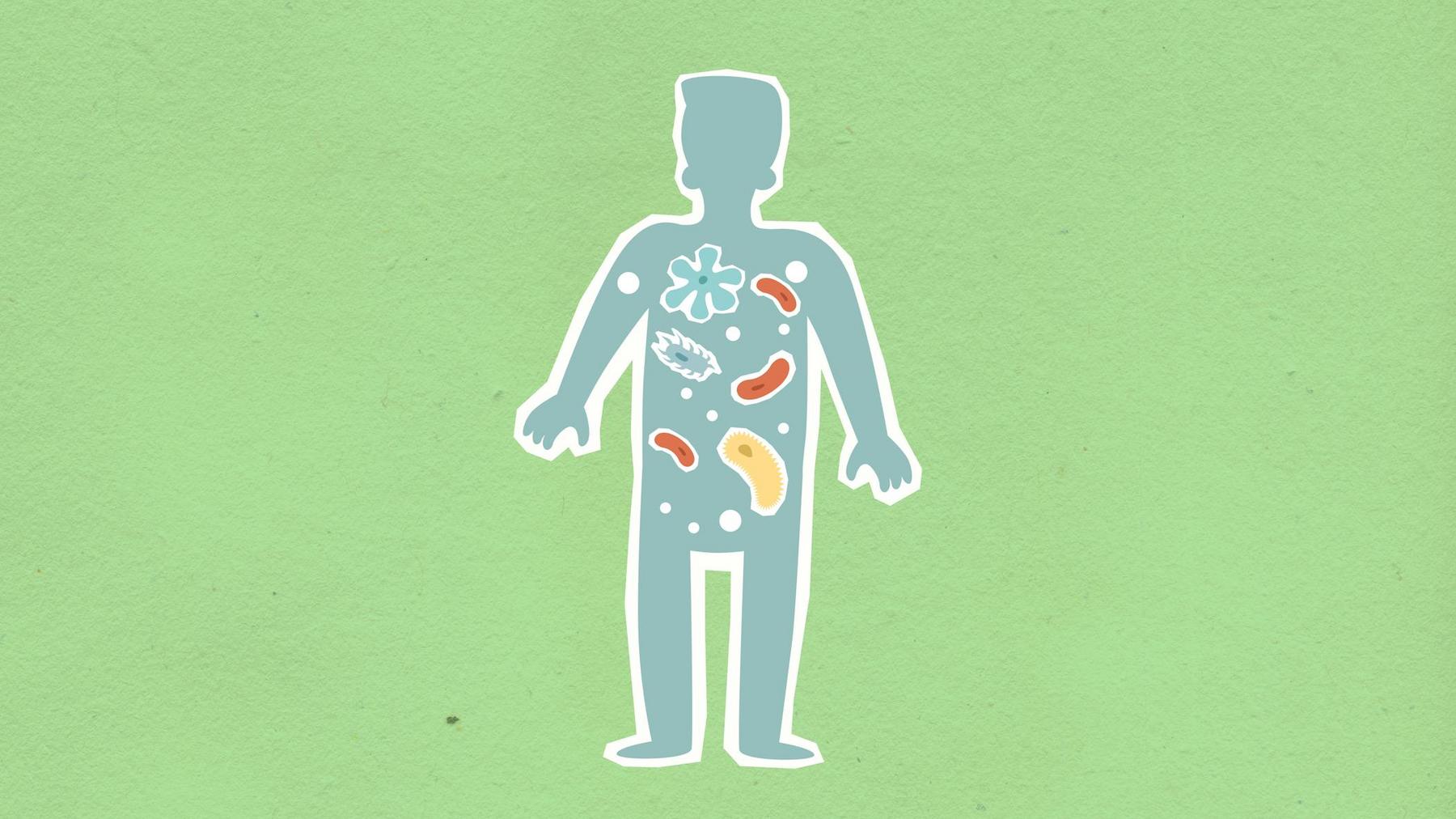Understanding the Intricate Relationship Between Your Gut and Weight
The human gut hosts a complex ecosystem of trillions of microorganisms that significantly influence our overall health and weight management capabilities. Recent research reveals that this microscopic world inside us—our gut microbiome—plays a far more critical role in weight regulation than previously understood. As we navigate through 2025, compelling evidence demonstrates that addressing gut health may be the missing link for those struggling with weight loss resistance despite traditional diet and exercise approaches.
The relationship between gut microbiota and weight regulation operates through multiple pathways, affecting everything from how we extract energy from food to how our bodies store fat and regulate appetite. This emerging field represents a paradigm shift in our understanding of obesity and weight management—one that offers new hope for effective, personalized weight loss strategies.
What Is the Gut Microbiome and How Does It Influence Weight Management?
The gut microbiome consists of over 1,000 bacterial species that collectively contain 150 times more genetic material than the human genome itself. This vast microbial community isn’t merely a passive inhabitant—it actively participates in numerous metabolic processes that directly impact weight regulation.
Research has established that the composition of gut bacteria differs significantly between obese and lean individuals. Obese individuals typically show a higher ratio of Firmicutes to Bacteroidetes bacterial phyla compared to lean individuals. This imbalance is significant because Firmicutes are more efficient at extracting calories from food, potentially contributing to weight gain. Studies show that obese participants exhibit a 20% increase in Firmicutes abundance when consuming high-calorie diets.
Certain bacterial species have been specifically linked to leanness, including Akkermansia muciniphila and Christensenella minuta. Conversely, bacteria like Dialister and specific starch-metabolizing microbes correlate with resistance to weight loss efforts. These microbial patterns suggest that our gut bacteria may be either allies or obstacles in weight management.
How Does Gut Microbial Diversity Impact Metabolism and Weight Loss?
Microbial diversity—the variety and abundance of different bacterial species in the gut—represents a critical factor in metabolic health. Lower diversity (α-diversity) is consistently associated with obesity and metabolic disorders.
Research data reveals a direct correlation between weight loss and improvements in gut diversity. For each kilogram of weight loss, α-diversity increases by approximately 0.012 units. This increased diversity correlates with:
- Reduced intestinal permeability (leaky gut)
- Decreased systemic inflammation
- improved insulin sensitivity
- Enhanced metabolic markers
| Parameter | Impact of 1kg Weight Loss | Clinical Significance |
|---|---|---|
| α-Diversity | +0.012 units | Improved metabolic outcomes |
| Intestinal Permeability | -0.017 reduction | Reduced “leaky gut” |
| Inflammatory Markers | 0.7 SD reduction in LPS levels | Decreased systemic inflammation |
| Beneficial Bacteria | Increased Akkermansia (typically 3-5% in healthy individuals) | Enhanced glucose metabolism |
This data underscores that weight loss isn’t just about calorie restriction—it fundamentally alters the gut ecosystem in ways that may help sustain long-term weight management.
What Mechanisms Connect Gut Health to Weight Regulation?
The gut microbiome influences weight through several sophisticated mechanisms:
Short-Chain Fatty Acid Production
Gut bacteria ferment dietary fibers to produce short-chain fatty acids (SCFAs) like acetate, propionate, and butyrate. These compounds:
- Stimulate the release of satiety hormones like GLP-1 and PYY
- Regulate energy metabolism by activating AMPK pathways
- Influence fat storage and utilization
However, the relationship is complex—excessive SCFA production by certain bacteria may paradoxically contribute to weight gain. For instance, some Firmicutes-derived acetate can cross the blood-brain barrier and activate hunger signals, potentially leading to overeating.
Inflammation and Metabolic Endotoxemia
Disruptions in gut barrier function allow bacterial endotoxins (lipopolysaccharides or LPS) to enter circulation—a condition called metabolic endotoxemia. Obese individuals exhibit 2-3 times higher circulating LPS levels compared to lean individuals. This triggers systemic inflammation that:
- Impairs insulin signaling
- Promotes fat accumulation
- Disrupts leptin function (the hormone regulating appetite)
- Creates a vicious cycle of continued weight gain
Bile Acid Metabolism
Gut bacteria modify bile acids, affecting their ability to:
- Regulate fat absorption
- Influence glucose metabolism
- Activate metabolic receptors like FXR
Obesity alters this bile acid processing, potentially reducing fat excretion and metabolic rate. Probiotic interventions that restore healthy bile acid metabolism have been shown to increase fecal fat excretion by up to 30%.
Which Dietary Approaches Best Support Gut Health for Weight Loss?
Dietary modifications represent powerful tools for reshaping the gut microbiome to support weight loss goals:
High-Fiber Diets
Clinical trials demonstrate that high-fiber diets (30g/day) can increase beneficial Bacteroidetes bacteria by 25% and reduce body weight by 2.3kg compared to low-fiber diets. Fiber acts as a prebiotic, selectively nourishing beneficial bacteria that:
- Produce appetite-regulating SCFAs
- Strengthen gut barrier function
- Reduce inflammatory pathways
Soluble fibers from foods like oats, legumes, and certain fruits appear particularly effective at promoting beneficial microbial shifts.
Omega-3 Fatty Acids
Eicosapentaenoic acid (EPA) and docosahexaenoic acid (DHA) from fish oil have been shown to increase the abundance of Christensenella minuta, a bacterium associated with leanness. A six-month supplementation with 3g/day of omega-3s was associated with a 4.2cm reduction in waist circumference and a 15% increase in microbial diversity in obese individuals.
These essential fatty acids appear to mitigate the adverse effects of high-fat diets on gut composition while promoting anti-inflammatory bacterial profiles.
How Effective Are Probiotics and Other Interventions for Gut-Mediated Weight Loss?
Several specific interventions targeting gut health show promise for weight management:
Probiotic Therapy
Clinical studies have identified specific probiotic strains with weight-loss benefits:
- Lactobacillus rhamnosusCGMCC1.3724: Women taking this strain lost 4.3kg more than placebo groups over 24 weeks, with sustained results at 52 weeks
- Bifidobacterium lactisB420: Daily supplementation (10 billion CFU) reduced body fat by 5% over 6 months
- Akkermansia muciniphila: Pasteurized forms reduced visceral fat mass by 5% in clinical trials
Synbiotics (Probiotics + Prebiotics)
Combining probiotics with prebiotics amplifies beneficial microbial shifts. A 2024 study reported that a synbiotic regimen (30g prebiotics + 50 billion CFU probiotics) yielded 8.2% greater weight loss than diet alone, while normalizing metabolic markers.
Fecal Microbiota Transplantation (FMT)
FMT from lean donors to obese recipients improves insulin sensitivity and reduces BMI by 1.3 points within 6 weeks. However, long-term efficacy appears limited without supporting dietary changes, as the recipient’s original microbiota often reestablishes dominance.
Why Do Weight Loss Responses Differ Between Individuals?
Individual variations in weight loss response can often be traced back to differences in gut microbial composition:
Gender-Specific Microbial Patterns
Research has identified distinct obesity-associated microbiota patterns between men and women:
- Women show higher levels ofPrevotellaspecies associated with increased BMI and impaired insulin signaling
- Men exhibit elevatedParabacteroides helcogeneslinked to visceral adiposity and elevated LDL cholesterol
These differences may explain why gender-specific approaches to weight management often yield better results. Hormonal interactions further complicate this picture, with estrogen regulating gut permeability through specific protein pathways.
Personalized Response Prediction
Emerging technologies combining metagenomic sequencing with machine learning can now predict individual responses to weight loss interventions based on gut microbiome profiles. For instance, algorithms analyzing baseline Christensenella levels can identify individuals likely to benefit from high-fiber diets with 80% accuracy.
This personalized approach represents the frontier of weight management—moving beyond one-size-fits-all recommendations to targeted strategies based on an individual’s unique microbial ecosystem.
The Future of Gut-Focused Weight Management
The gut microbiome represents a central modulator of weight regulation, influencing energy harvest, inflammation, and metabolic signaling. As we advance through 2025, research continues to refine our understanding of this complex relationship.
Strategic interventions—including dietary modifications, targeted probiotics, and personalized approaches—offer promising pathways to restore microbial balance, enhance weight loss, and mitigate obesity-related health risks. Integrating gut microbiome assessments into comprehensive weight management programs provides a science-based approach to improve outcomes for those struggling with weight management.
While causality remains an area of ongoing research, the correlation between gut health and weight regulation is undeniable. For individuals seeking effective weight management solutions, addressing gut health represents a scientifically-grounded strategy with multiple metabolic benefits beyond weight loss alone.
Can improving gut health alone lead to significant weight loss?
While improving gut health creates a metabolic environment more conducive to weight loss, research indicates it works best as part of a comprehensive approach. Studies show that interventions targeting gut health typically produce 5-8% additional weight loss when combined with dietary modifications compared to diet alone. The most effective approaches address both gut microbial composition and overall caloric balance.
How quickly do dietary changes affect gut microbiome composition?
The gut microbiome can respond remarkably quickly to dietary changes. Research indicates that significant shifts in microbial communities can occur within 24-48 hours of dietary modifications. However, establishing stable, beneficial changes typically requires consistent dietary patterns over 2-4 weeks. High-fiber diets show particularly rapid effects, increasing beneficial bacteria within days of implementation.
Are there clinical differences in how gut health affects weight management in men versus women?
Yes, research demonstrates significant gender differences in obesity-associated microbiota. Women show higher levels of Prevotella species linked to increased BMI, while men exhibit elevated Parabacteroides helcogenes associated with visceral fat. Hormonal interactions further complicate this picture, with estrogen regulating gut permeability through specific protein pathways. These differences may explain varying responses to dietary interventions between genders.
What foods most effectively promote a healthy gut microbiome for weight management?
Research identifies several food categories that positively influence gut bacteria associated with weight management. Fermented foods (yogurt, kefir, kimchi) introduce beneficial probiotic strains directly. Prebiotic-rich foods (Jerusalem artichokes, chicory root, onions) nourish beneficial bacteria. Foods rich in polyphenols (berries, dark chocolate, green tea) inhibit pathogenic bacteria while promoting beneficial species. Diversity in plant foods appears particularly important, with each different plant food contributing to greater microbial variety.
How do comprehensive medical weight management programs address gut health?
Medical weight management programs increasingly incorporate gut health strategies alongside traditional approaches. This may include specialized diagnostic testing to identify microbial imbalances, personalized dietary protocols targeting specific bacterial patterns, and strategic use of evidence-based probiotics or prebiotics. The most effective programs monitor microbial changes throughout the weight loss journey, adjusting interventions based on individual responses and the latest research findings.



